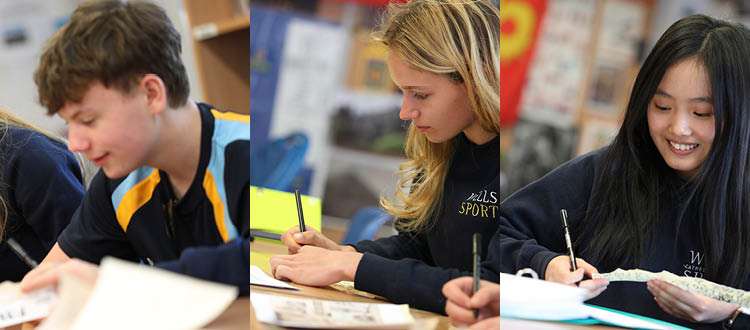Calligraphy on Vellum
Lower Sixth historians experienced the art of Anglo-Saxon communication last week, attempting calligraphy on vellum (parchment) as part of their course, learning about the history of manuscripts such as the Lindisfarne Gospel, the first great art produced in Britain.
In addition to their beauty and the value of their scholarship, Head of History, Chris Eldridge wanted pupils to understand the challenges involved in physically making them – a complete Bible like the Codex Amiatinus needed the skins of 1000 sheep/goats/calves.
It also provided the opportunity for pupils to experience what writing was like during the first 500 years of the School’s existence – paper only became widespread in Europe in the 15th century.
In addition to their beauty and the value of their scholarship, Head of History, Chris Eldridge wanted pupils to understand the challenges involved in physically making them – a complete Bible like the Codex Amiatinus needed the skins of 1000 sheep/goats/calves.
It also provided the opportunity for pupils to experience what writing was like during the first 500 years of the School’s existence – paper only became widespread in Europe in the 15th century.



